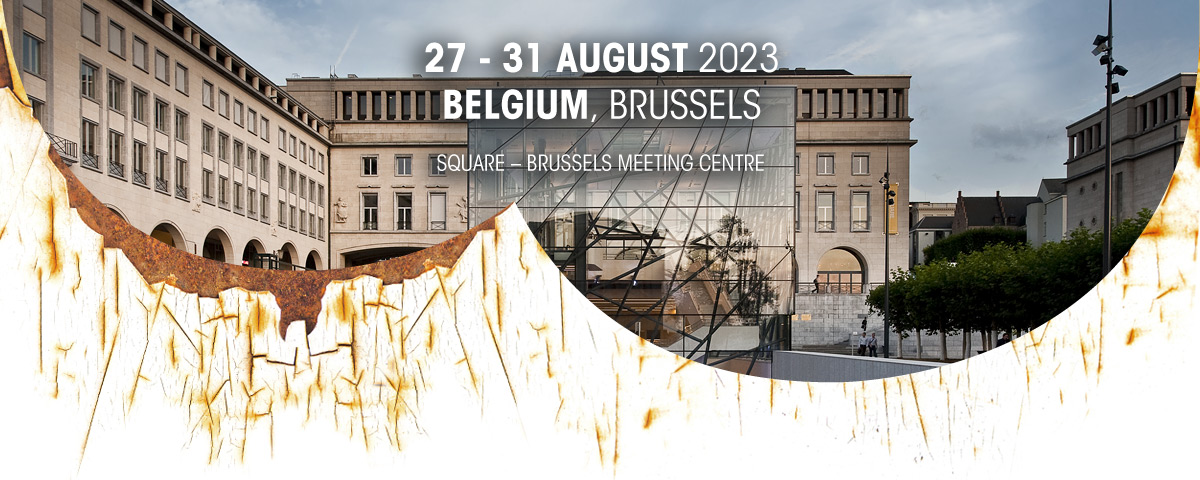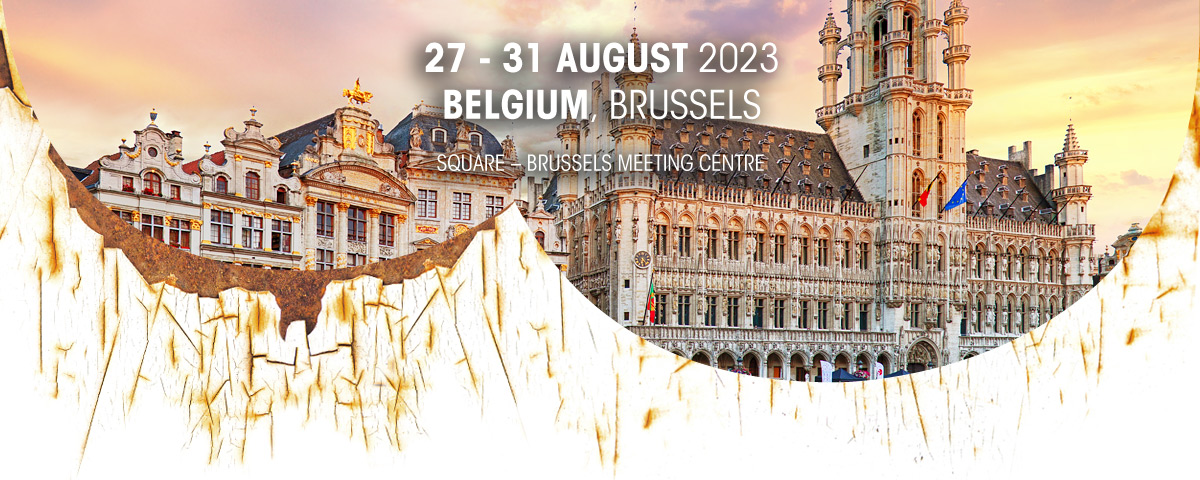Plenary Speakers
Meet our Plenary Speakers. Please click on the name of the speaker to read the biography.

(USA)
Lecture: Real-World Applications of Corrosion Science:
Perspectives from the Automotive Industry
Niamh Hosking is a research engineer at Ford Motor Company, specialising in corrosion protection for automotive materials. She has over 20 years automotive experience, having worked for Ford in the UK, Germany and Australia, supporting vehicle launches in Europe, China, and India. She moved to Ford’s Research & Advanced Engineering Department in the US in 2013, where she studies corrosion mechanisms and testing of lightweight alloys and mixed-material structures, and the interaction of substrates and automotive pre-treatments and coatings. Niamh graduated from the University of Nottingham with a PhD in Materials and Mechanical Engineering in 2007 and has a BEng in Mechanical Engineering from the University of Limerick in her native Ireland.

(Germany)
Lecture: Light alloys: unravelling mechanisms
for degradation control
Sviatlana Lamaka is currently the head of Department of “Electrochemistry and Big-Data” at Institute of Surface Science of Helmholtz Zentrum Hereon in Germany. Her field of research is corrosion science, with emphasis on mechanistic understanding of light metal degradation in complex environments. Her research interests include high-throughput robotic and in silico screening of corrosion inhibitors, understanding their inhibition mechanisms and their compatibility with various protective coatings. High-throughput screening also yields small organic molecules supporting uniform alloy dissolution and as such serving as electrolyte additives for metal-air batteries, constituting another line of research. Sviatlana also has a fascination for the complexity of bioabsorbable metal (Mg, Zn, Fe and Mo) degradation. Although being diverse at a glance, all these topics share similar underlining corrosion processes, of which many steps can be elucidated with the scanning probe microscopy techniques, actively employed by Sviatlana and her students over the past 15 years.
Sviatlana attained her PhD in Analytical Chemistry in 2002, in Minsk and dived into corrosion problems at the University of Aveiro and University of Lisbon in Portugal between 2005–2015, before moving to Germany. Dr. Sviatlana Lamaka has co-authored over 150 peer-reviewed publications, patents and book chapters that found interests among the peers yielding an h index of 45. She coordinated several European, national and bilateral projects with multiple academic and industrial partners and enjoys continuous collaboration with international colleagues across the globe.

(Belgium)
Lecture: A step forward towards safe and sustainable by design chemicals and materials
I have been working in the European Commission since 2021, in various positions linked to research and innovation policies and funding. I am currently Deputy Head of Unit in the unit Industrial Transformation of DG Research and Innovation. The unit manages several Horizon Europe Partnerships Process4Planet, Made in Europe, Metrology and PARC on chemical risk assessment and is also following the new Chips Joint Undertaking. We are also in charge of responding to the Materials 2030 Manifesto submitted to the Commission in February 2022 and developing Safe and Sustainable by Design concept for chemicals and materials.
Before this position I have been team leader in Environment and Health, also in the Directorate General Research and Innovation (DG RTD) of the European DG Research and Innovation. Previous position held in the Commission have been in areas such as eHealth, research coordination, ICT research strategy development and international cooperation for research. My academic degrees are a PhD in Physics with speciality in protein crystallography and NMR from the Joseph-Fourier University in Grenoble, France, a Master in crystallography and biological NMR from the same University, and a Master of Chemistry from the University of Konstanz in Germany. Before joining the European Commission, I worked as a Post-doc at the University in Copenhagen, Denmark at the Centre for Crystallographic Studies.

(China)
Lecture: Data-driven intelligent technologies
for corrosion prediction and control
Professor Dawei Zhang is the deputy director of National Materials Corrosion and Protection Data Center at University of Science and Technology Beijing and associate director of Beijing Advanced Innovation Center for Materials Genome Engineering. He is an Editor of Corrosion Science and Chair of International Advisory Council of Association for Materials Protection and Performance (AMPP). Professor Zhang’s research interests include data-driven corrosion modelling, smart protective coatings and microbial corrosion. He has published over 200 SCI journal papers with over 9,000 citations and an h-index of 50.
Plenary Speaker – Young EFC

(France)
Lecture: Unsupervised Discovery of Corrosion Mechanisms by Optical Microscopies
Viacheslav (Slava) SHKIRSKIY is an accomplished young physical chemist, specializing in local electrochemical methods and in-situ optical investigations. He completed his PhD in the field of corrosion at Chimie-ParisTech and further developed his expertise through DAAD and Marie-Curie fellowships at the Max-Planck-Institut für Eisenforschung and the University of Warwick. As a recipient of the CNRS 2021 competition, he joined the ITODYS laboratory at Université Paris Cité, where he established his own research direction. Currently, his work is centered on developing advanced multi-microscopy methods using machine learning algorithms to understand and control the electrochemical activity of nanostructured metal interfaces.


